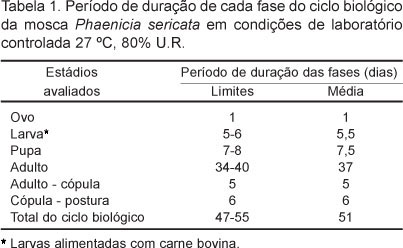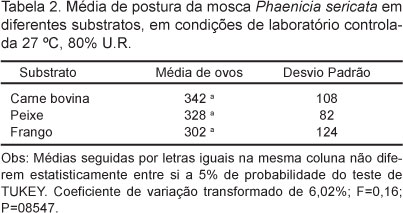Dipterans of the species Phaenicia sericata were captured and placed in cages in order to evaluate their biological cycle and to define the best substratum for posture and development of the larvae in controlled temperature and humidity (27°C e 80% UR). Four decomposing substrata were evaluated: bovine, chicken and fish meat as well as bovine liver. No statistical differences were observed in the three first substrata and no posture occurred in the liver. The same substrata were used for feeding larvae and no interference in the larval cycle was observed. The copula occurred five days after the pupation and the posture six days after the copula. The average longevity of the adult flies was 37 days when they were fed with honey and water. According to these results the biological cycle of P. sericata in laboratory was approximately of 51 days.
Phaenicia; biological cycle; substratum; reproduction


